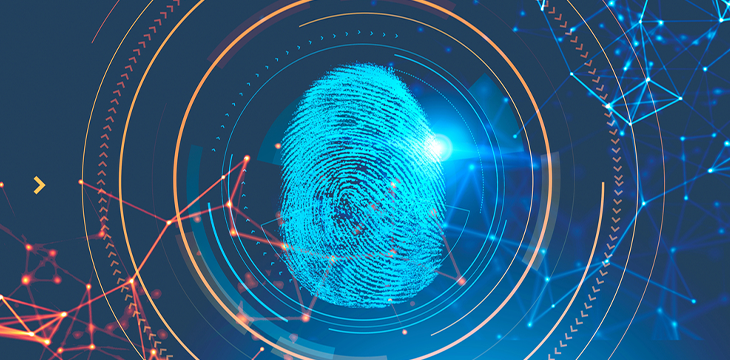|
Getting your Trinity Audio player ready...
|
In an increasingly digital world, establishing and maintaining trust in online identities is paramount. In Southeast Asia for example, the region’s digital economy has consistently expanded. The region’s users have increasingly engaged with digital platforms, contributing to high rankings in various global categories, including the advancement of Digital Identification systems.
At a panel discussion entitled “Digital IDs and their Impact on Digital Economy Development” at the recent AIBC Asia in Pasay City, Philippines, industry leaders explored the role of blockchain technology in revolutionizing how digital identities are verified and managed.
Blockchain as a framework of trust
Stephanie Tower, business development lead – Philippines of blockchain firm nChain, detailed how blockchain technology can provide a robust framework for trust in the digital economy.
“Trust is important in any aspect of our lives,” Tower stated.
She drew parallels between historical trade practices, where trust in a person’s identity was paramount, and the modern need to establish similar trust online.
Tower explained that blockchain enables the creation of digital identities that can be issued not just to individuals but also to businesses and Internet of Things (IoT) devices. This comprehensive approach facilitates the formation of a complete digital ecosystem. She emphasized the importance of selective data disclosure, allowing users to share only the necessary information for specific transactions, thus enhancing privacy and security.
The challenge of data ownership
As for Amor Maclang, Convenor of Digital Pilipinas, she emphasized the need to reframe how data and national IDs are perceived.
“We are primarily poor, not because there’s no money, but because people do not own their data,” Maclang asserted.
She highlighted that major financial institutions often block individuals from owning their data, a practice that stifles economic growth and personal empowerment.
She believes that data ownership should be central to the digital economy, allowing individuals to have control over their personal information rather than being at the mercy of institutions.
KYC solutions in a diverse digital landscape
Penny Chai, VP of Business Development APC at SumSub, addressed the challenges of verifying digital identities, especially for individuals without traditional forms of identification. SumSub specializes in making digital identity verification safe and accessible, preventing fraud and protecting identities throughout their lifecycle.
Chai highlighted that SumSub’s platform is customizable to fit different regions’ legal and business requirements. This adaptability ensures that even those in remote or technologically underserved areas can access and benefit from digital identity solutions. She stressed the importance of inclusivity, making sure that both tech-savvy users and those less familiar with digital tools can navigate the identity verification process.
Bridging the gap between physical and digital payments
Meanwhile, Lawrence Ferrer, President and CEO of payment solutions provider Bayad, discussed the practical applications of digital identity in the payment sector. Bayad, a trusted name in bills payment in the Philippines, faces the challenge of migrating customers from physical to online payments. Ferrer emphasized the importance of collaboration with fintech companies and financial institutions to build a scalable and inclusive digital payment ecosystem.
Ferrer pointed out that many customers lack formal IDs, which hampers their ability to participate fully in the digital economy. By leveraging transaction data and collaborating with partners, he said Bayad aims to create a digital identity based on payment behavior. This approach not only facilitates access to financial services but also enhances trust and security in online transactions.
The evolution of identity verification
Digital identity verification is evolving beyond traditional Know Your Customer (KYC) methods. Maclang mentioned how India’s Aadhaar system has simplified identity verification by using limited filters and biometrics, setting a precedent for other countries. She suggested that the Philippines could adopt a similar model, leveraging technology to create a digital locker where individuals control their data and grant access as needed.
Tower added that self-sovereign identity, a blockchain-based concept, allows individuals to own and manage their credentials. This approach ensures that users can selectively disclose information, maintaining privacy while fulfilling verification requirements. Blockchain technology thus enables a shift from centralized control of identities to user-owned data, promoting greater transparency and security.
Inclusivity and accessibility in the digital age
Chai and Ferrer emphasized the need for inclusivity in digital identity solutions. Chai described how SumSub’s customizable platform can cater to diverse user needs, from urban centers to rural areas. Ferrer highlighted Bayad’s efforts to integrate unbanked and underbanked populations into the digital economy, using transaction data to build trust and offer tailored financial services.
The discussion underscored the transformative potential of digital identities in driving economic inclusion and enhancing security. As technology continues to evolve, the focus remains on creating systems that are not only secure and trustworthy but also accessible and empowering for all users.
Experts agreed that blockchain technology plays a critical role in building trust in digital identities. By advocating for data ownership, leveraging blockchain for secure and transparent verification, and ensuring inclusivity, industry leaders are paving the way for a more equitable and efficient digital economy.
Watch: Meet the new Block Dojo Philippines founders aiming for global success

 03-04-2026
03-04-2026 




